Climate Change on the Geopolitical Front Line in the High Arctic

Boštjan Videmšek investigates how wartime has shifted relations between Russia and Norway in Svalbard
The upper deck of the beautifully preserved 60-year-old exploration vessel MS Polar Girl provided a fantastic view of the blue-white glaciers. We were sailing to Barentsburg, a mining town owned by the Russian state-controlled company Arktikugol Trust, which meant we were headed toward a major new geopolitical battlefield and the very front line of our changing climate.
During the last two months, the Norwegian archipelago of Svalbard has been melting five times faster than normal, as shown on the latest NASA satellite images.
It is rather terrifying how one can observe the icy mass slowly screeching down into the ocean. During my visit, the melting was further accelerated by the fact that the noonday sun had acquired an almost Mediterranean bite. For the second day in a row, the thermometer readings exceeded 20 degrees Celsius.
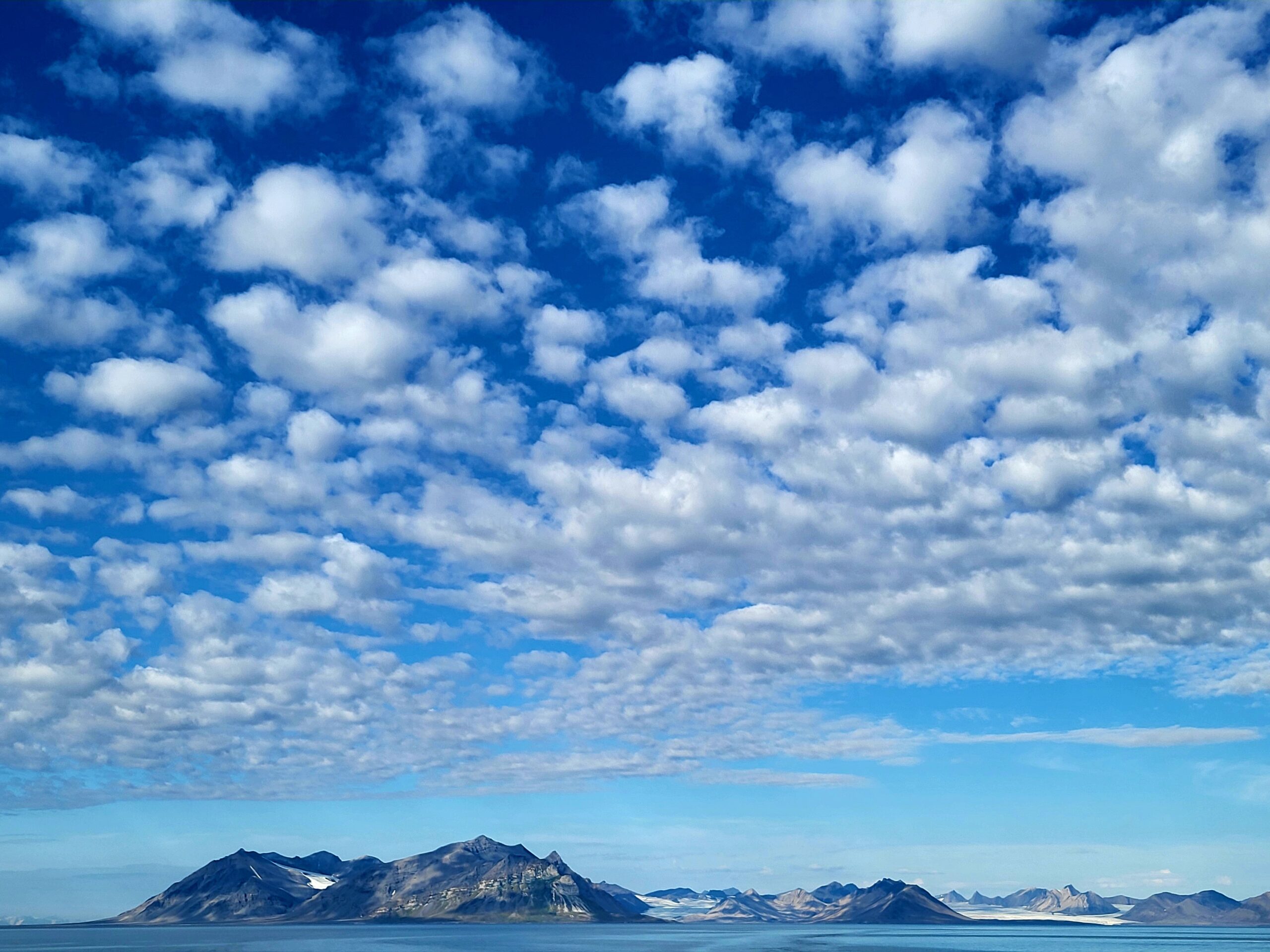
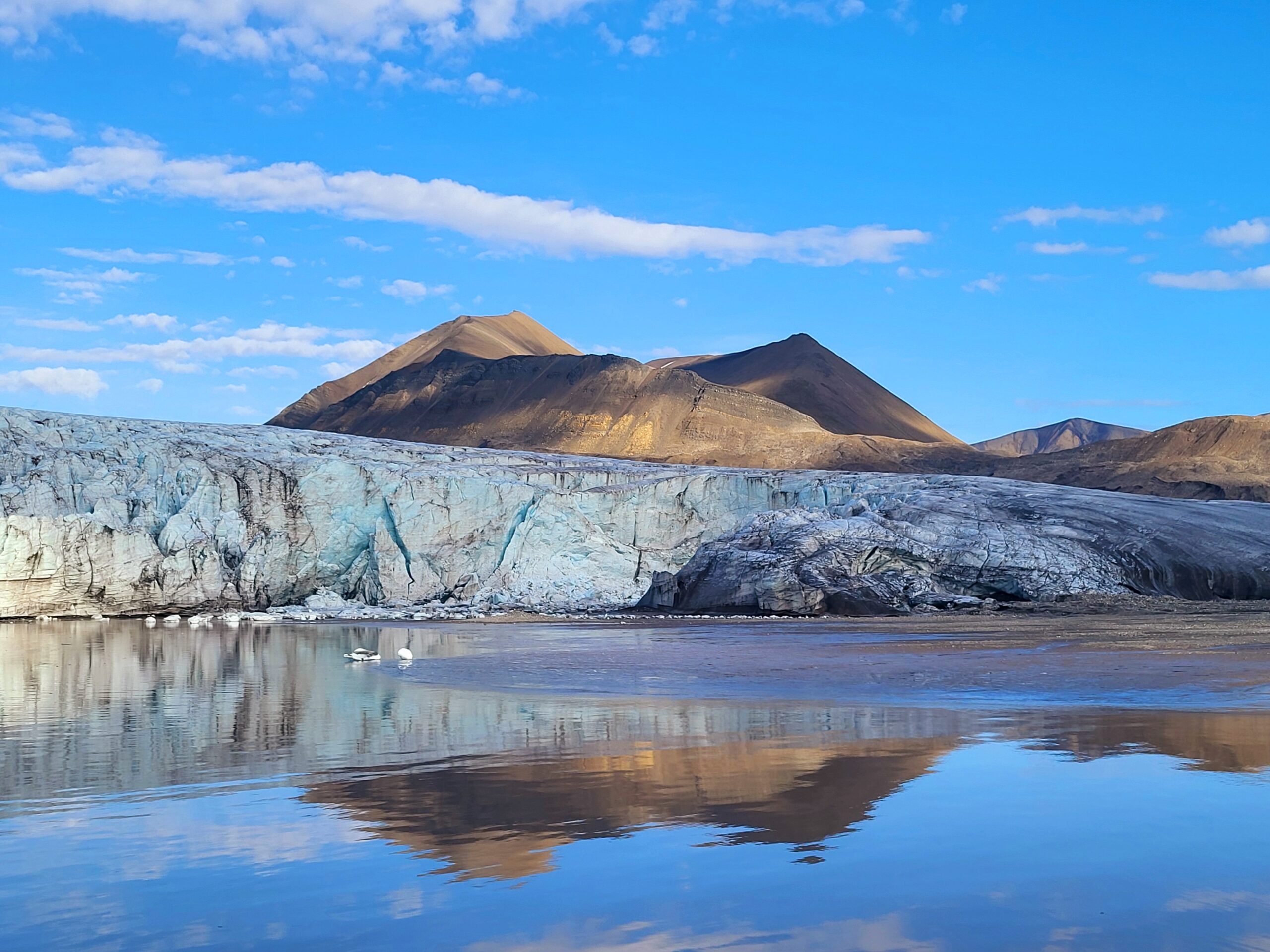
Barentsburg, located in the High Arctic, was getting rather used to the breaking of temperature records. “This here could be described as Climate Change Live,” said our guide Masha with a grimace on the upper deck of MS Polar Girl.
I.
Hailing from Omsk in Siberia, Masha arrived in Barentsburg in 2021. Her command of the English and Norwegian languages, obtained through her studies in Moscow, compelled some ‘head-hunters’ to offer her a job on Svalbard.
“I jumped at the opportunity,” Masha explained. “Partly because it meant I could help financially support my parents. The first year in Barentsburg was great! I was completely removed from any type of politics whatsoever. We were simply living our lives. I certainly felt much freer…But then everything started to change.”
Masha briefly paused her tale to point out a huddle of walruses soaking up the sun. “That is why I love Svalbard so much!” she exclaimed.
Masha left Barentsburg two years ago – not long after Russia invaded Ukraine, which had a severely negative effect on everyday life in the Arctic mining town. Prior to the war, Barentsburg was home to some 700 inhabitants. These days, no more than 400 are left.
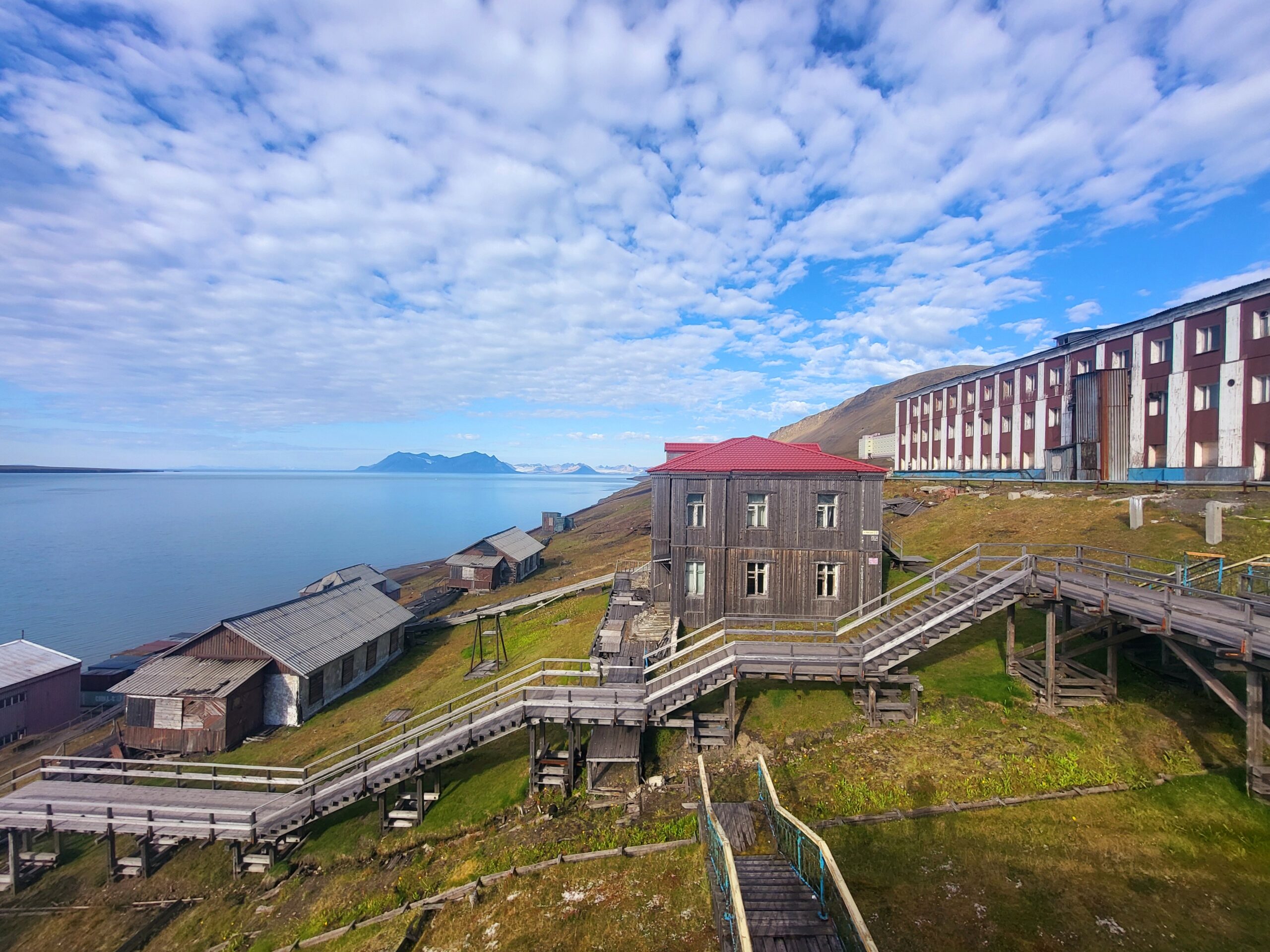
“Tourism saw a sharp decline,” Masha explained during our voyage to Barentsburg. “Many people decided to leave. I was one of them.”
She decided to head for Longyearbyen, a Norwegian mining town and the biggest settlement on Svalbard. She immediately found a job with the MS Polar Girl.
Masha now lives and works on the boat. “I grew to love this way of life. As a guide, I can make four times what I made in Barentsburg. And I really like working with people. Except of course for those who judge me for my nationality, blaming me for everything that’s happening just because of my nationality! But you know, I’ve grown very selective about letting such people dictate my moods.”
The young Russian spends half the year working on the ship, and the other half traveling the world. She is especially fond of Asia, where she can mostly get around visa-free.
“Look!” she shouted just before the ship entered the Barentsburg port. A stone’s throw away, two pods of white beluga whales were playing under the sun’s brilliance.
All we could do was fall silent.
A Russian stronghold on Svalbard
Upon reaching the port we were greeted by a red star drawn on the face of a hill, next to a slogan stating ‘Миру-мир!‘ (“Peace to the World!” in Russian)
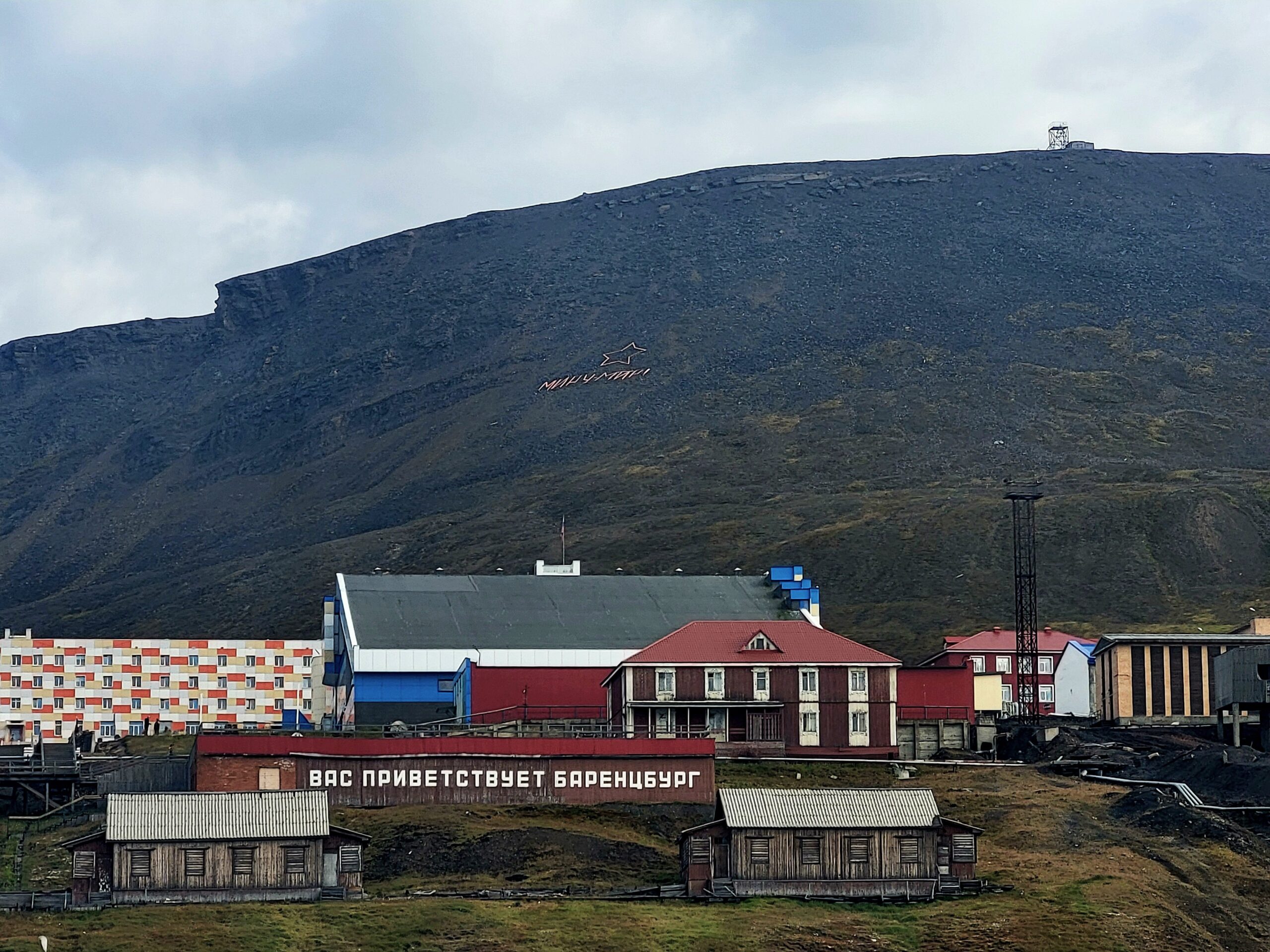
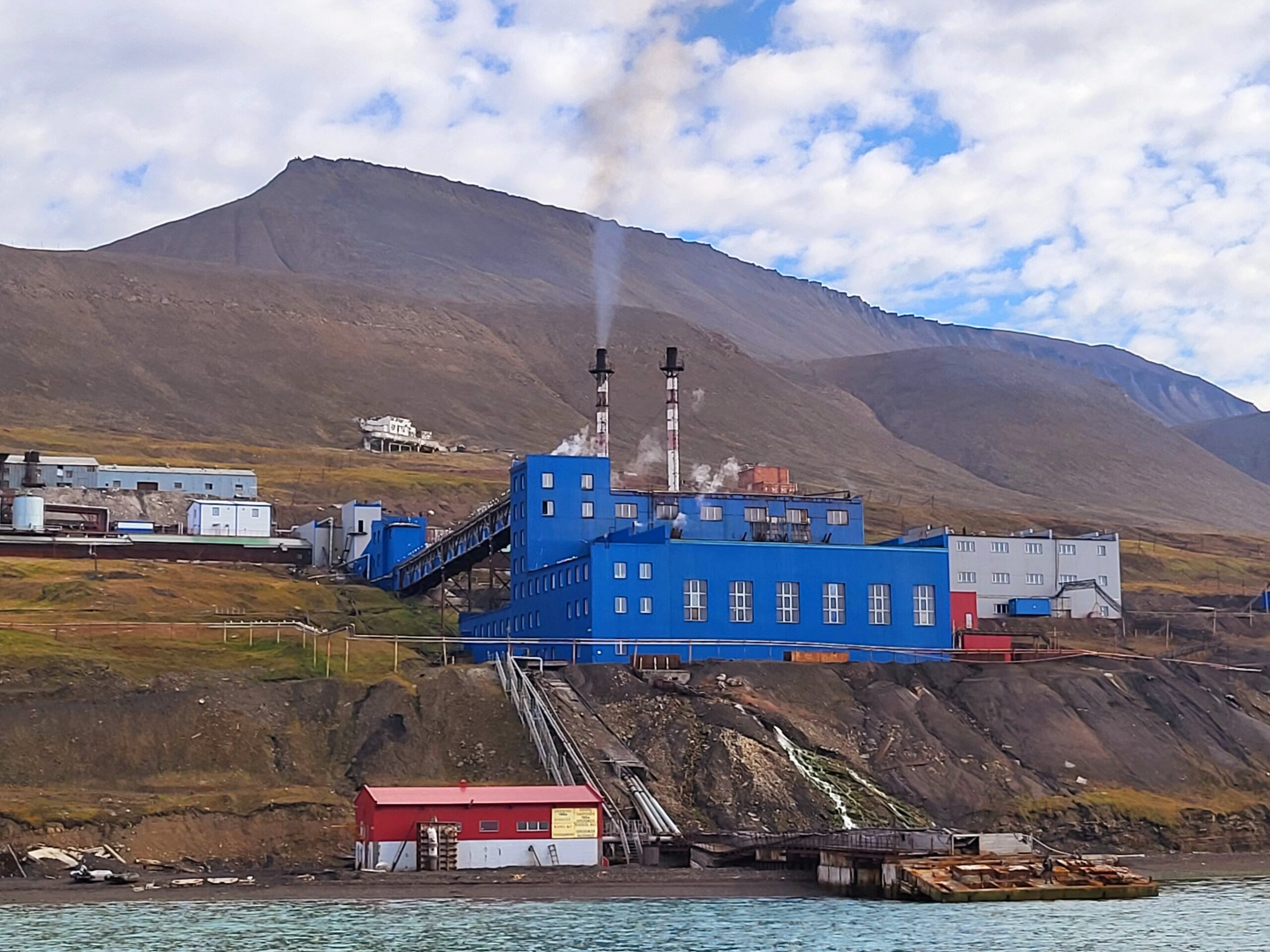
Teams of workers were preparing shipments of black coal for transport. Dense white smoke rose from the chimney of a blue thermal power plant. Heavy Russian trucks kept making the rounds along the gravel road heavily coated with black ash. The former seat of the Russian state-owned mining company was flying both Russian and Soviet flags.
II.
Barentsburg was named after the Dutch Arctic explorer Willem Barentzs. On 7 March 2024, the town celebrated 100 years of existence.
According to the Svalbard Treaty of 1920, the Arctic Archipelago falls under Norwegian jurisdiction and sovereignty. Yet all 46 signatory countries are allowed free pursuit of economic activities. At the height of the mining spree, some 4000 people from the former Soviet republics lived on Svalbard.
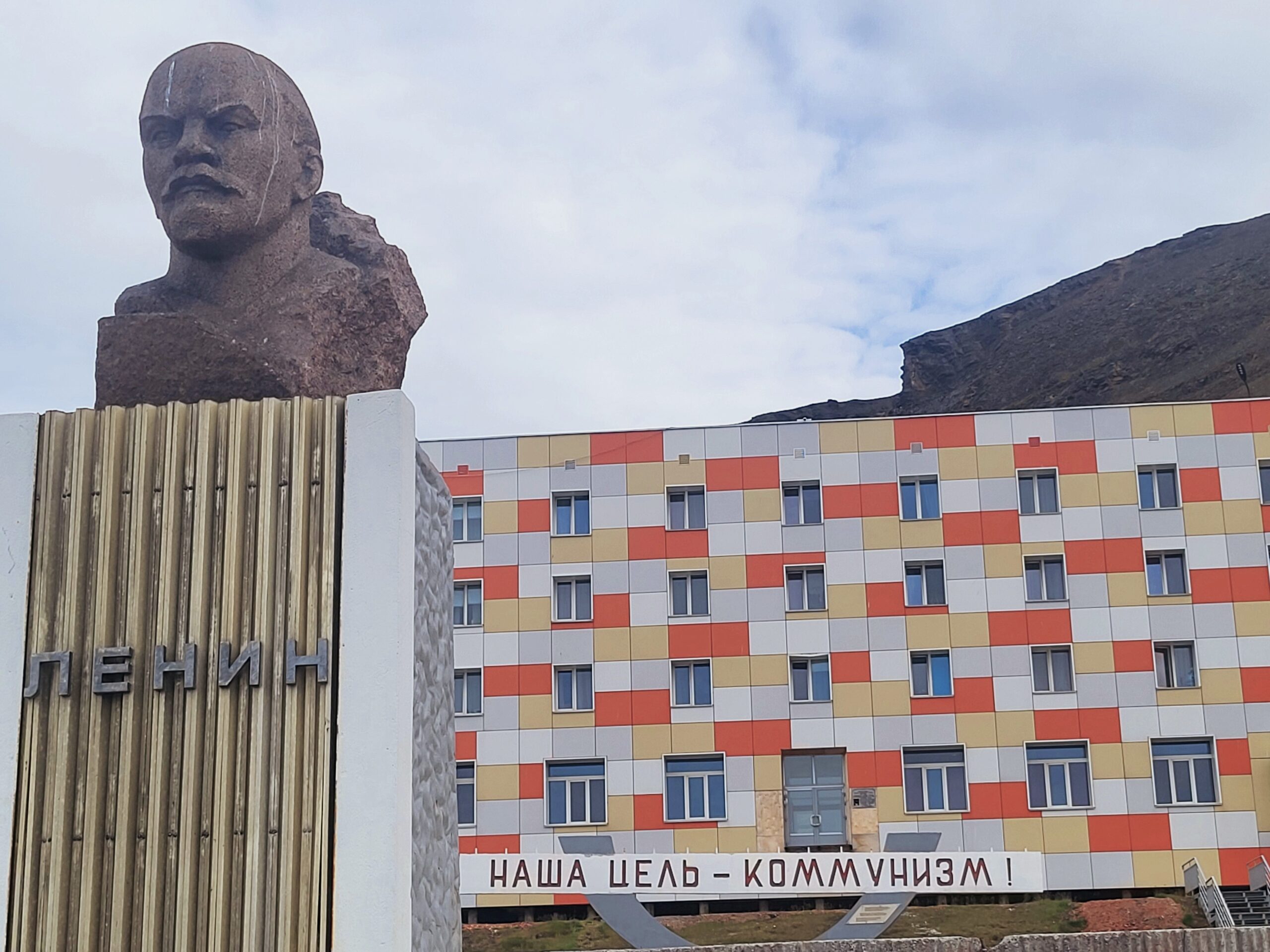
As I climbed the steep wooden steps leading up from the port, stunning vistas of glaciers everywhere around me were sharply contrasted by images from another age.
In front of a many-hued apartment complex typical of communist satellite towns, a tall bronze statue of Lenin endured in all its beneficent serenity. The slogan “Communism – our goal!” was inscribed in huge letters on the apartment building behind the statue.
Remnants of the Soviet past are omnipresent in this town, where most of the action occurs deep underground – as far as 1000 meters below the sea surface, where the mine’s nethermost gallery is located.
Despite its unprofitability, the mine operates 24 hours a day, every day.
III.
Things are eerily similar in Pyramiden, the other long-abandoned Russian mining town of the region.
On 21 June, a huge Soviet flag appeared on the mountain above the city. Before that, the Russian local authorities erected a sizeable Orthodox cross on the town’s outskirts. “Our tradition was renewed and will thus live on,” the Arktikugol management declared. In the style of a Soviet infantryman liberating a Nazi fortress, the Soviet flag atop the neighboring mountain was planted by Arktikugol’s CEO Ildar Neverov.
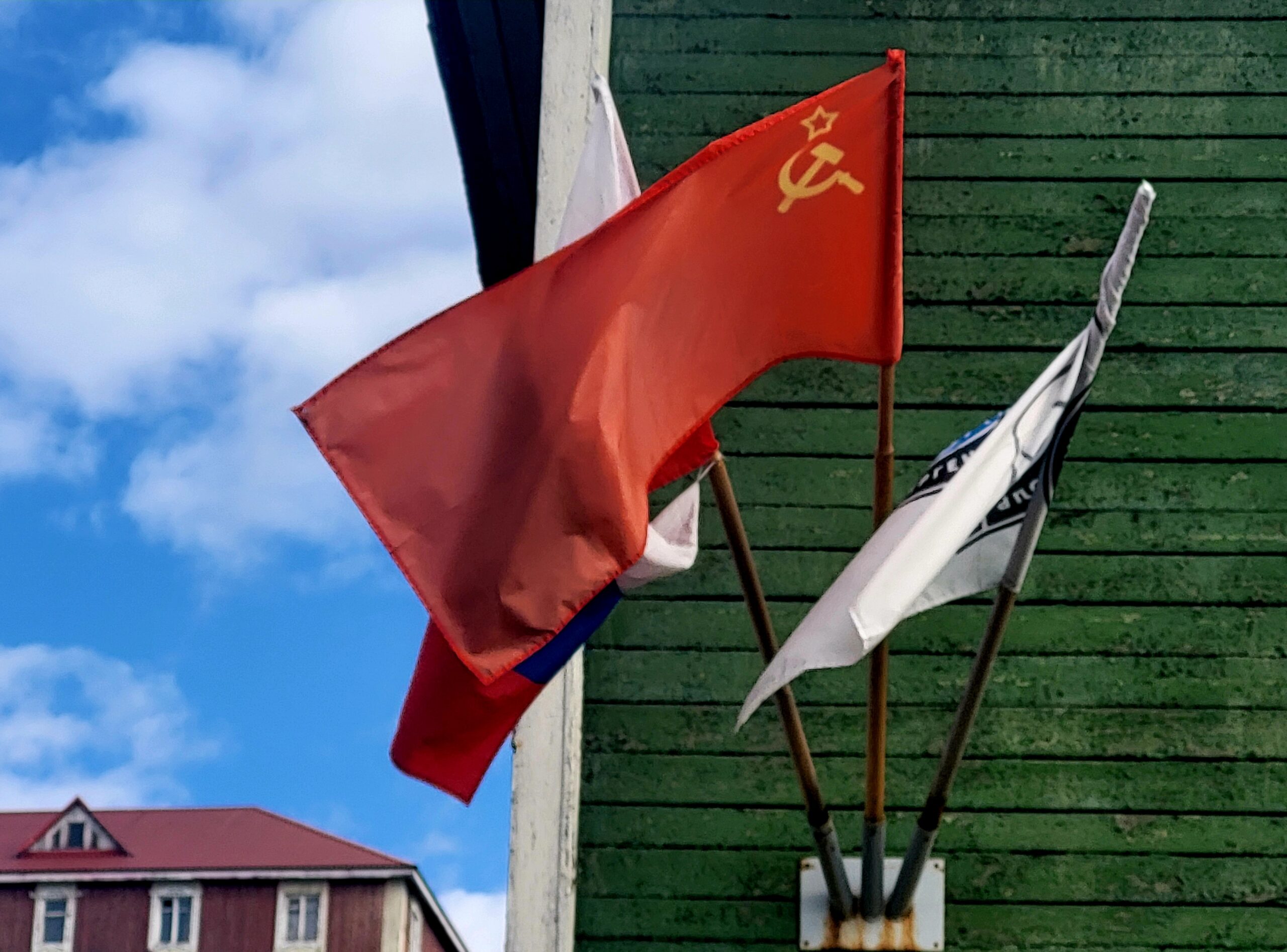
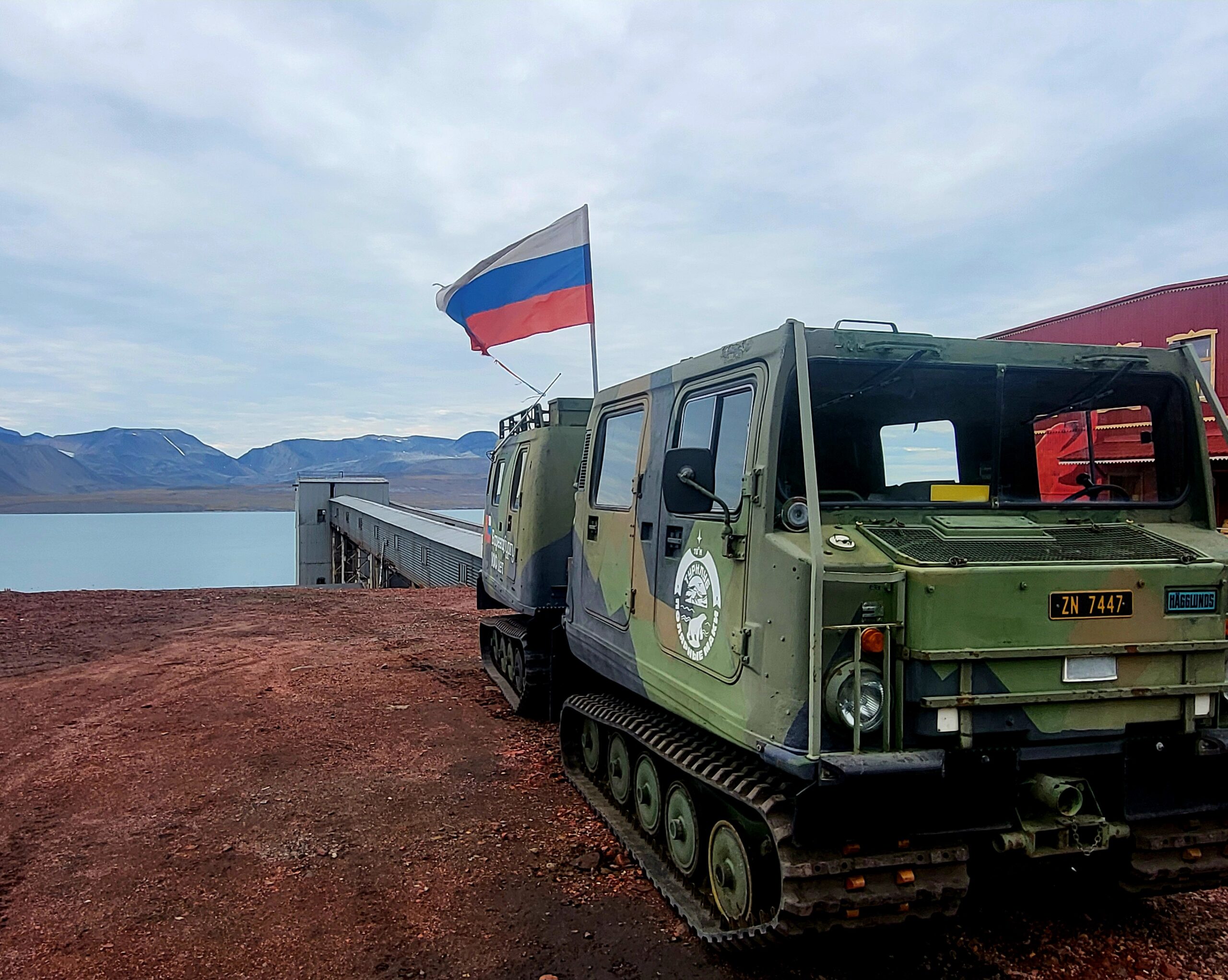
Provocative flag-flying seems to have turned into a beloved Russian Arctic sport. During last year’s victory parade on 9 May, Arktikugol even flew the flag of the self-proclaimed Donetsk People’s Republic. The flag was hung in Pyramiden. During this year’s parade, Barentsburg’s main street was taken over by a procession of snow sleds packed with people dressed in Russian army uniforms waving Russian flags.
Near the legendary Red Bear pub, I noticed a few BV206 Norwegian military vehicles flying Russian flags. Yet the main role of the great proliferation of Russian and Soviet symbols all over Barentsburg and Pyramiden is not the preservation of history, but one of current domination.
IV.
Given the consequences of climate change – which can be observed by the naked eye on Svalbard – the geopolitical relevance of the Arctic Archipelago is now greater than even during the Cold War. Especially after the swift disappearance of sea ice opened up new sea routes connecting the Russian Far East Pacific region to the Atlantic Ocean.
The geopolitical and security role of the Arctic has also grown more pronounced due to the tense relations between Russia and the Western world, which, according to interviewee after interviewee, are worse than they have ever been, even during the Cold War era.
In the wake of the Russian invasion of Ukraine and the adoption of Western sanctions, the historically sound diplomatic relations between Russia and Norway also took a hit. The Russian Northern Fleet is anchored at the Kola peninsula west of Svalbard, where many nuclear warheads are also stationed. At the same time, NATO is mounting pressure on Norway to bolster its military presence in the Arctic. In 2023, the Russian Ministry of Foreign Affairs even recategorized Norway from an “unfriendly” to a “very unfriendly” country.
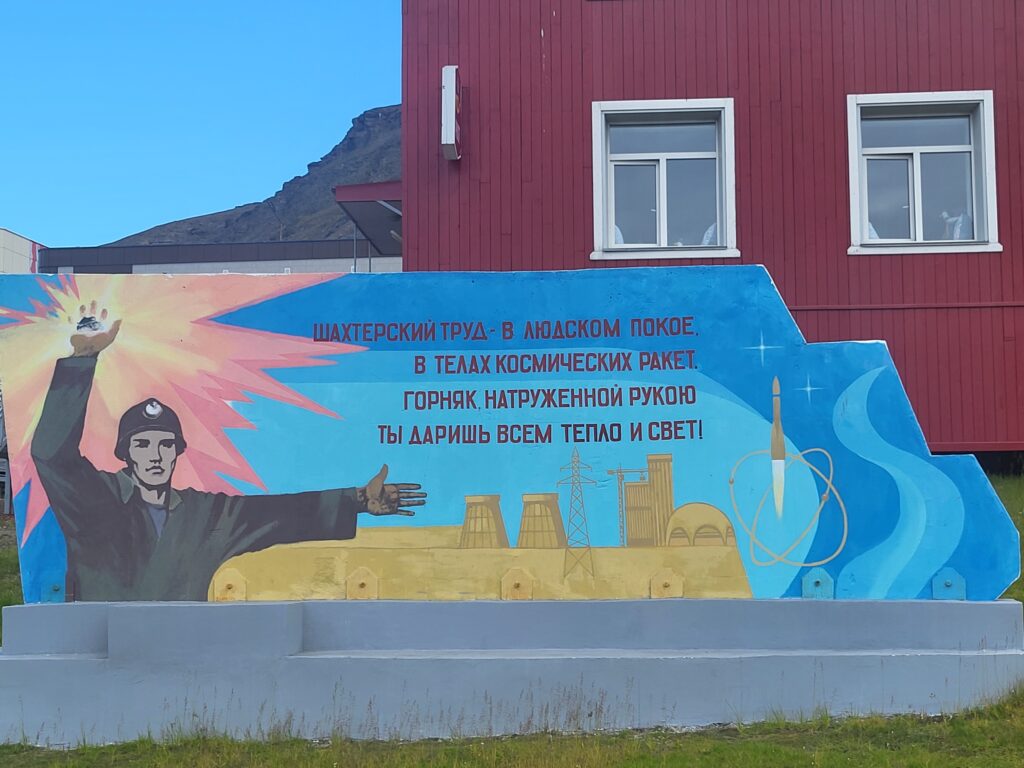
In 2019, Vladimir Putin created a special “Svalbard committee.” In past speeches, the Russian leader often pointed out the strategic importance of the Arctic and its natural bounties for Russia’s economic growth. Lest we forget, in 2007, Russia opted to fly its flag at the Northern Pole – a symbolically aggressive gesture.
On Svalbard, some of the other signatory countries of the Svalbard Treaty of 1920 have revealed their increasing appetites. For example, China now openly desires to rebrand itself as ‘a near-Arctic country’. In July 2024, the Norwegian government thus halted the sale of the last great chunk of private property on Svalbard (Søre Fagerfjord) to an unknown Chinese buyer. The Norwegian government intends to purchase the property for around 350 million euros, according to local sources.
In China’s view, the prevention of the sale represented a breach of the Svalbard treaty, especially the provision granting equal rights regarding economic activities in the archipelago to each of the signatory countries.
According to sources, all these developments can and should only be interpreted in the broader geopolitical context.
V.
Russia hasn’t reinforced its presence on Svalbard merely to raise flags. It also intends to open a new center for scientific exploration in the abandoned town of Pyramiden. Moscow has already officially invited China, India, and South Africa to participate – as well as Iran, Saudi Arabia, and the United Arab Emirates.
One of the institutions collaborating to set up the new Russian scientific hub is the Murmansk Marine Biological Institute.
“In 2022, cooperation with unfriendly countries stopped, although before that it was actively developing. Now the vector has turned to the East, we are developing cooperation with our Chinese colleagues,” Denis Moissev, the Murmansk Institute director’s deputy, told the Russian newspaper Komsomolskaya Pravda in June.
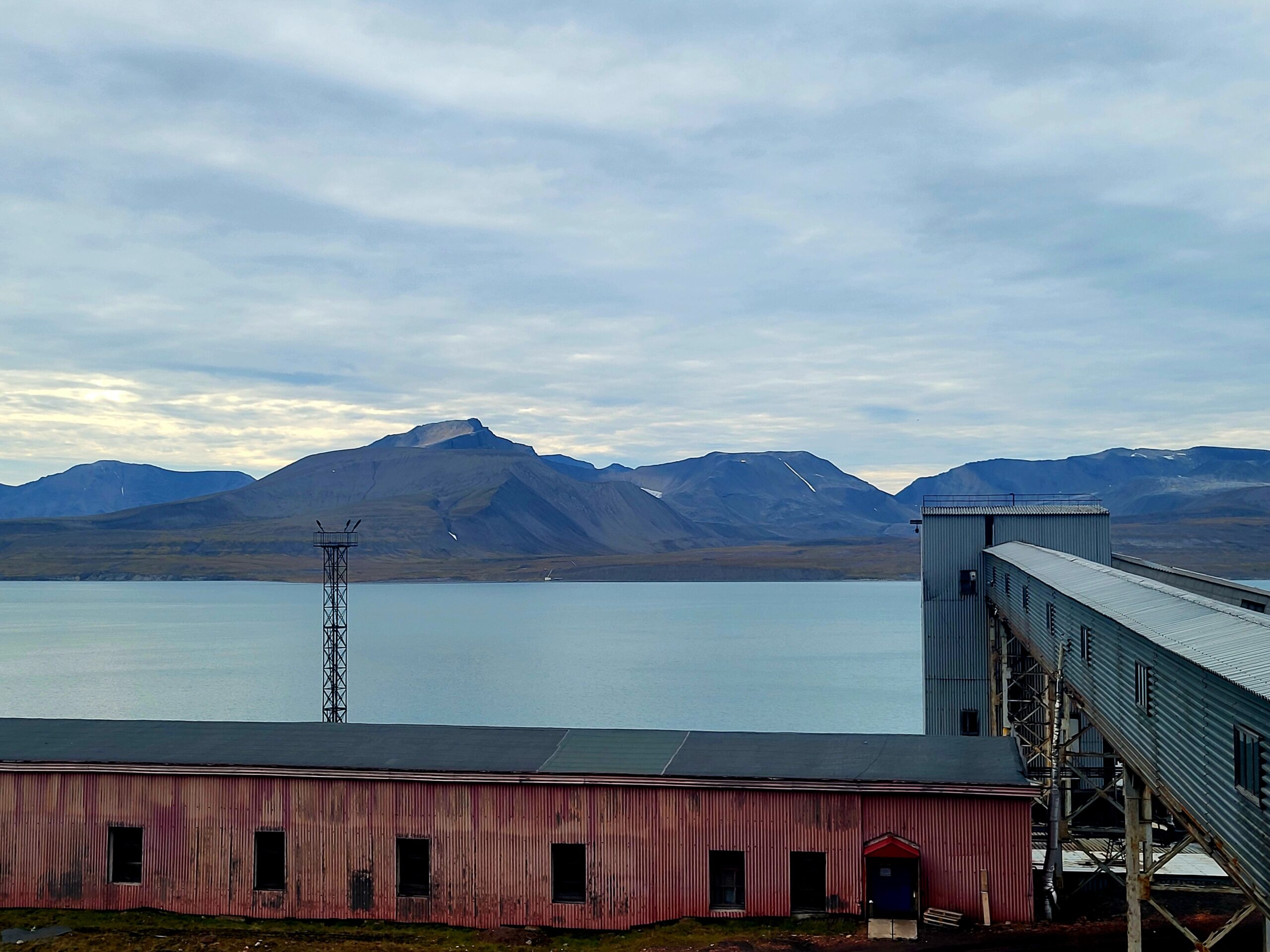
Russia announced its plans to open the scientific center right after Norway declared that the UNIS University Center located in Longyearbyen was the only institution allowed to provide higher education in the archipelago.
Unsurprisingly, Norway sees the introduction of the new scientific center as a territorial move. “We want to strengthen national control and build up Norwegian presence on the archipelago,” Norway’s Minister of Justice Emilie Enger Mehl recently revealed.
VI.
At the time of my visit, Barentsburg seemed quiet and almost empty. Only a few people strolled its main street, most of them tourists. The tenement blocks were not exactly teeming with life either.
‘Potemkin village!’ was my first spontaneous association.
The small beautiful wooden Orthodox chapel built to commemorate the miners killed in a 1996 plane crash also looked deserted. Only the Red Bear pub still evoked signs of former glory.
Four and a half years of continuous shutdown – first coronavirus, then war – have taken a heavy toll on the Russian mining town, where the quality of life used to surpass that of the Norwegian Longyearbyen, located on the other side of the fjord.
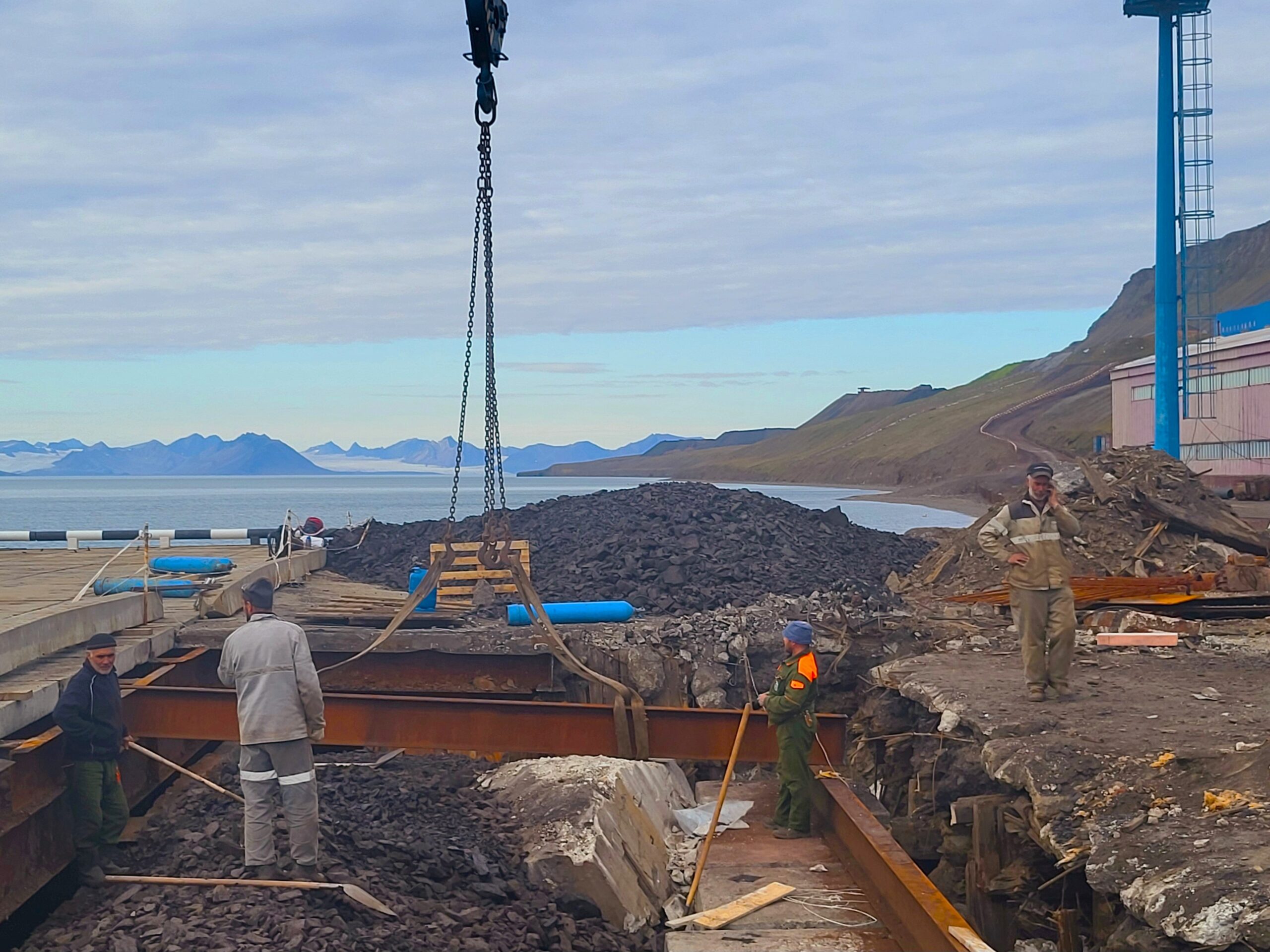
Not much coal is left below Barentsburg. What little remains is increasingly expensive and difficult to extract. The miners, working nonstop in four shifts, need an hour to reach the nethermost gallery.
The town has been kept afloat through substantial financial injections by the Russian state. The Russian authorities realize Barentsburg cannot remain a mining town for much longer. This is why Arktikugol decided to undertake a major shift toward tourism. But then the pandemic broke out, followed by war and sanctions.
Barentsburg is now seriously considering building a fish-processing plant. Russia must keep a presence in Svalbard, no matter what it takes.
Severed relations
The anthropologist Dina Brode Roger is a lifelong student of Arctic life. She has been returning to Svalbard since 2016. On average, she spends six months a year on the Arctic Archipelago. Before that, she explored Greenland, Alaska, and Iceland.
Over the past eight years, she noticed tremendous change sweep over Svalbard, especially connected to climate change, the consequences of which are probably nowhere more obvious than here. However, the social and economic consequences of mounting geopolitical tensions also had a huge impact.
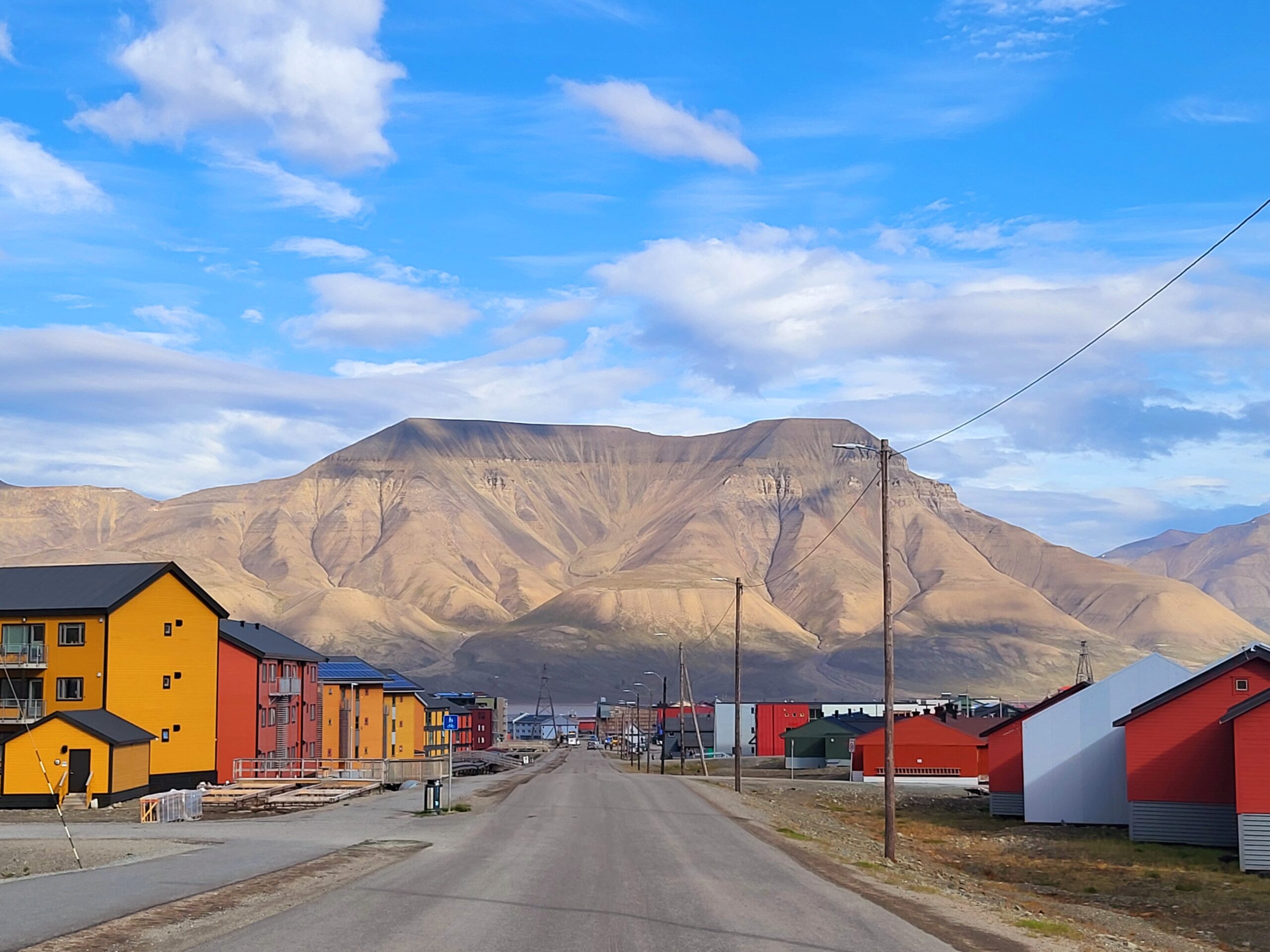
Although she used to pay regular visits to both Barentsburg and Pyramiden, Brode Roger shared that ever since 24 February 2022 – the date marking the beginning of Russian aggression in Ukraine – she never once visited Barentsburg. “It was a personal decision.” She refused to cooperate in the propaganda project she believed the Russian regime was conducting in the small mining town.
“There used to be good contacts between the Norwegian and Russian side,” Brode Roger told me in Longyearbyen, “especially through the cultural and sporting exchanges. It was the same at the height of the Cold War. Back then, Norway made many efforts so that the situation in Svalbard remained as stable as possible. The Soviet Union also avoided conflict. There was a lot of cooperation and mutual assistance. You see, people needed each other back then when miners lived and worked on both sides. And now…well, things are very different. Especially on account of the Russian invasion of Ukraine. And on account of how things are going in Russia.”
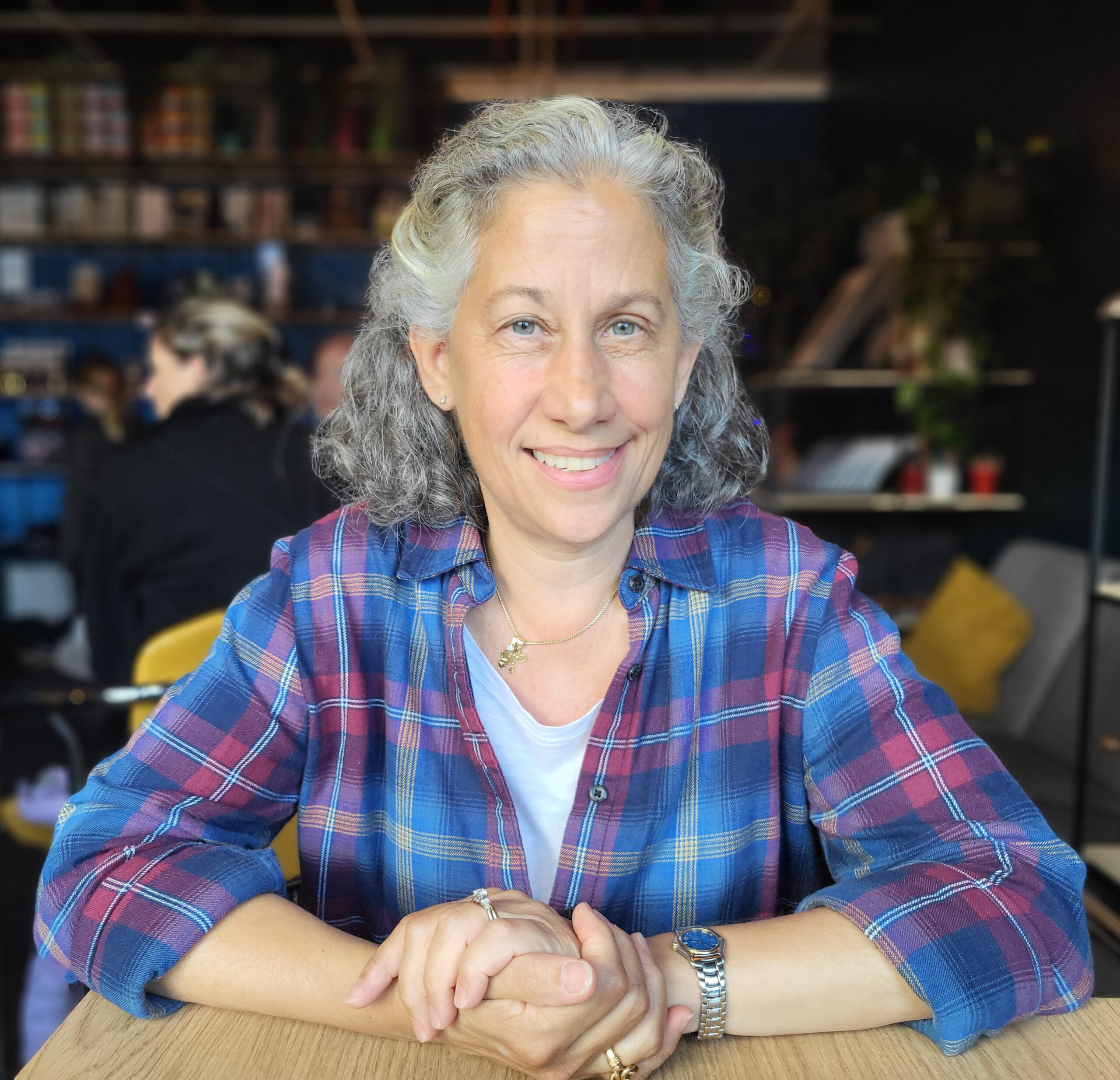
Brode Roger paused briefly, then continued: “A lot of people came to Longyearbyen from Barentsburg over the past two years. I’m talking about Ukrainians and Russians who had to leave. Their experience helped shape the views of Longyearbyen residents on what was going on in Barentsburg. And also on the war in Ukraine. The current Barentsburg authorities are much closer to Moscow than ever. They simply do what they’re told. The Russian administration is not interested in communicating with Europe. Isolation seems to be the order of the day. It was different during the Cold War. A lot has changed. The world is a very different place now.”
Yet another person who felt compelled to leave Barentsburg after the Russian invasion of Ukraine was Timofei Rogozhin, the former head of Arktikugol’s tourism branch.
Rogozhin recently told the Barentsburg Observer that all employees were ordered to stop posting their views on the war or risk being fired. “The past year has turned a civilized modern village with an open and friendly society into some kind of grey closed and aggressive swamp,” Rogozhin added after relocating to the north of Norway.
VII.
Despite everything, some of the Longyearbyen residents are determined to maintain relations. Especially during the winter, when travel between the two mining towns is possible with the help of snow sleds. Unlike official ones, private relations have not yet been forbidden.
The project of deep-sea mining is very important to our government. Russia knows this very well, so it keeps sending clear signals through its political actions in Barentsburg. They’re mostly sending provocations in the vein of: ‘We can do that too!’
Dina Brode Roger
“Russia is extremely skilled at recognizing the weak points of different countries, especially the neighboring ones,” Brode Roger stated clearly. “So, the Russians know very well which buttons to push. They are forever ‘checking the temperature,’ looking for soft tissue. Norway is placing a great emphasis on its presence in the Arctic. The project of deep-sea mining is very important to our government. Russia knows this very well, so it keeps sending clear signals through its political actions in Barentsburg. They’re mostly sending provocations in the vein of: ‘We can do that too!’ The erection of the huge Orthodox cross, the military parade…They clearly wish us to respond to these provocations, and they know how to do a lot with very little money invested!”
VIII.
One of those still trying to maintain at least indirect relations with his Russian colleagues is Torgeir Mork, the main meteorologist at the Longyearbyen airport for the past 20 years.
Mork deplores the fact that all contact with Arctic-based Russian scientists were cut off after the war. “Every morning, I still send my readings and predictions to Barentsburg – just like I always did,” he told me. ” I never get a reply from the weather station over there.”
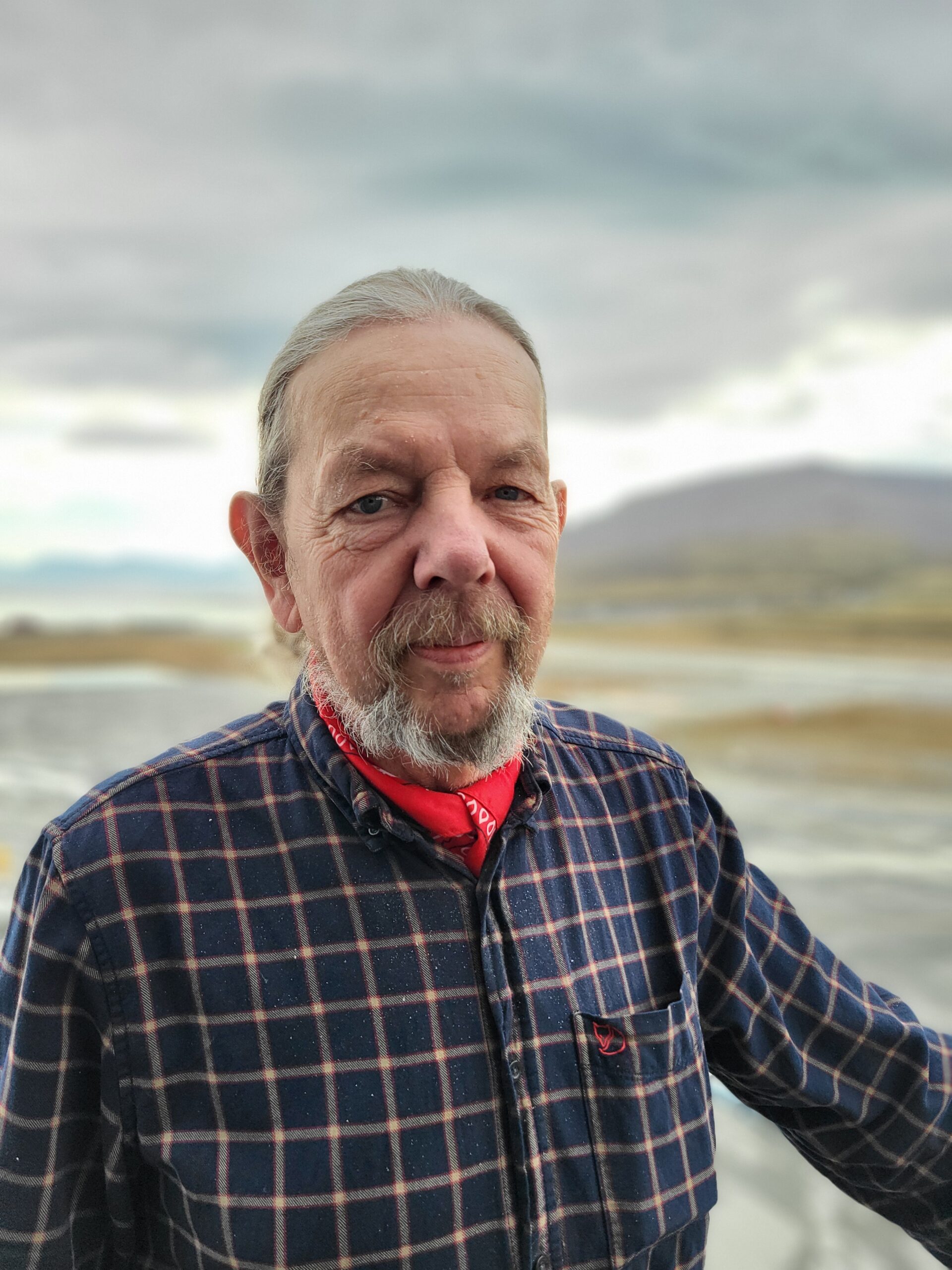
The long-serving meteorologist is convinced that to understand the frightening changes sweeping the Arctic region, international cooperation should be paramount.
“Before the war, we used to visit each other. We played chess and football. We had a lot of fun together. I can only hope this wretched war is over as soon as possible … And that history is not about to end,” Mork related at his post beside the Longyearbyen airstrip.
A writer’s view
The 36-year-old Russian writer Dina Gusein-Zade arrived in Barentsburg after the end of the coronavirus lockdowns, when virtually the entire Arctic was cut off from the rest of the world. She reached Svalbard right after Russia launched its offensive on Ukraine.
Hailing from Moscow, Gusein-Zade was drawn to the Arctic to find peace, shelter, and artistic inspiration. She landed a job as a tourist guide, which she viewed as a great opportunity to explore the Arctic.
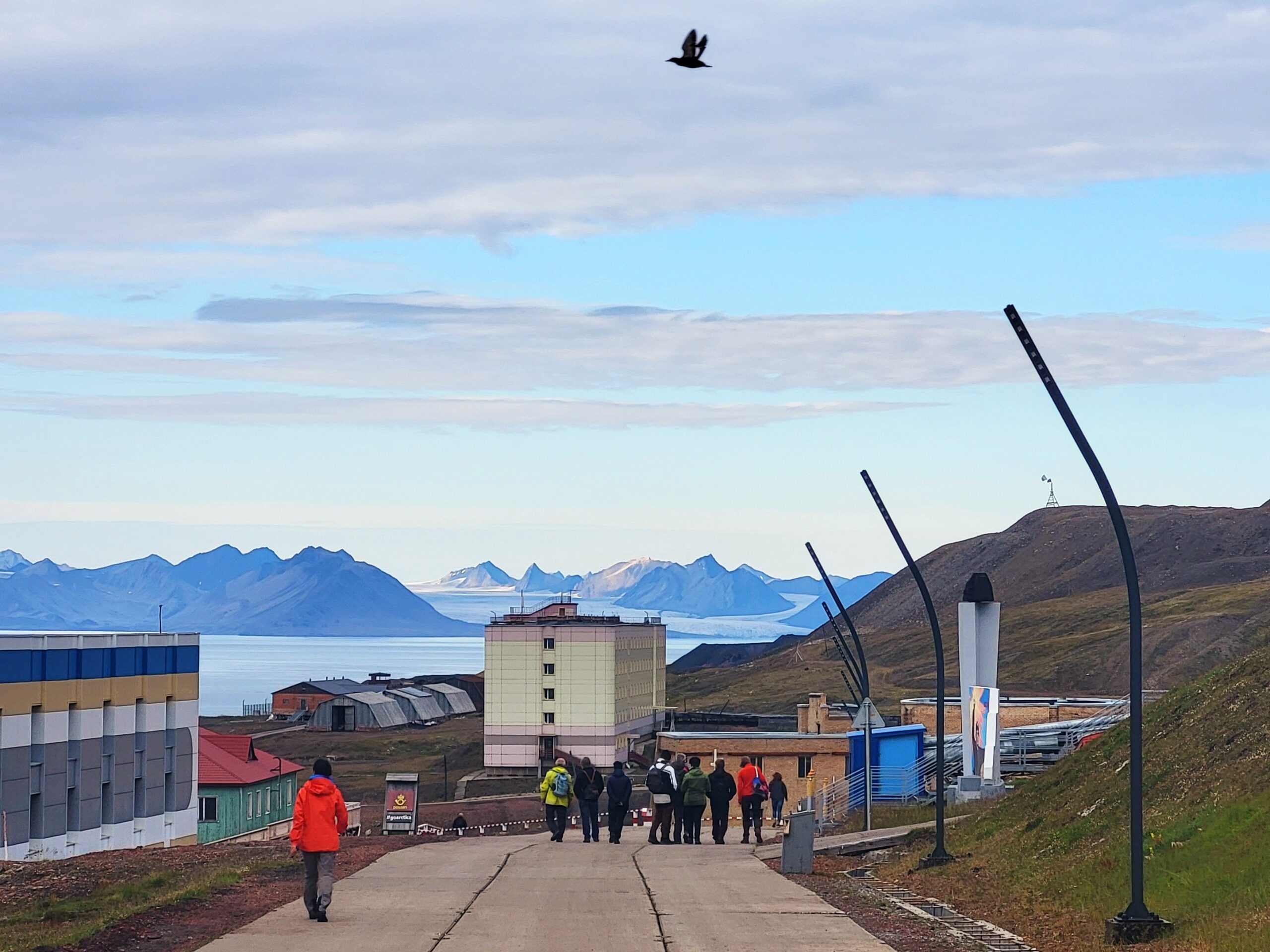
“Both as a writer and human being, I follow my own desires and expectations, not the expectations of others,” Gusein-Zade related. “Most of what I write is for myself, not for anyone else. I guess you could say writing is my form of therapy. The conditions for that sort of thing are great here, what with all the peace, quiet, and general remoteness. At the same time, I can mix with some very interesting people whenever I want. Everyone who comes here has an interesting story to tell.” Gusein-Zade is currently writing her second book.
“I can’t stay in the same place for very long,” she continued. “I spent a number of years hitchhiking all over the world. As soon as the tourist season starts here, I hit the road. I like Asia, Africa, the Caucasus … I guess I am basically a nomad!”
Gusein-Zade may be a nomad, but she is also a firm believer in connectedness.
“Human beings should not be forcefully separated!” She protested the current state of affairs. “All of us living in the Arctic should be cooperating. We need each other. Especially the scientists. Politics is another story altogether – or rather another dimension, full of grey areas. I can only hope that the rough times end soon.”
She hastened to add, “Not everyone is the same. It is not fair that ordinary people have to pay the price of political decisions in this manner. It is unfair for us to be treated as criminals and enemies solely based on our nationality. No country and no nation is intrinsically evil!”
The Russian writer-traveler paused to search the horizon for her next words.
“It took me a long time to come to grips with my humanity,” she said finally. “To accept my limitations and the fact that I have little to no control over the bad things that can be forced on people from above. I can suffer, but that won’t help the cause of peace at all. Especially when it’s your own country that’s doing something bad. So, I’m focusing on my role within my family and my circle of friends, and also on my writing work. This has become my front line.”
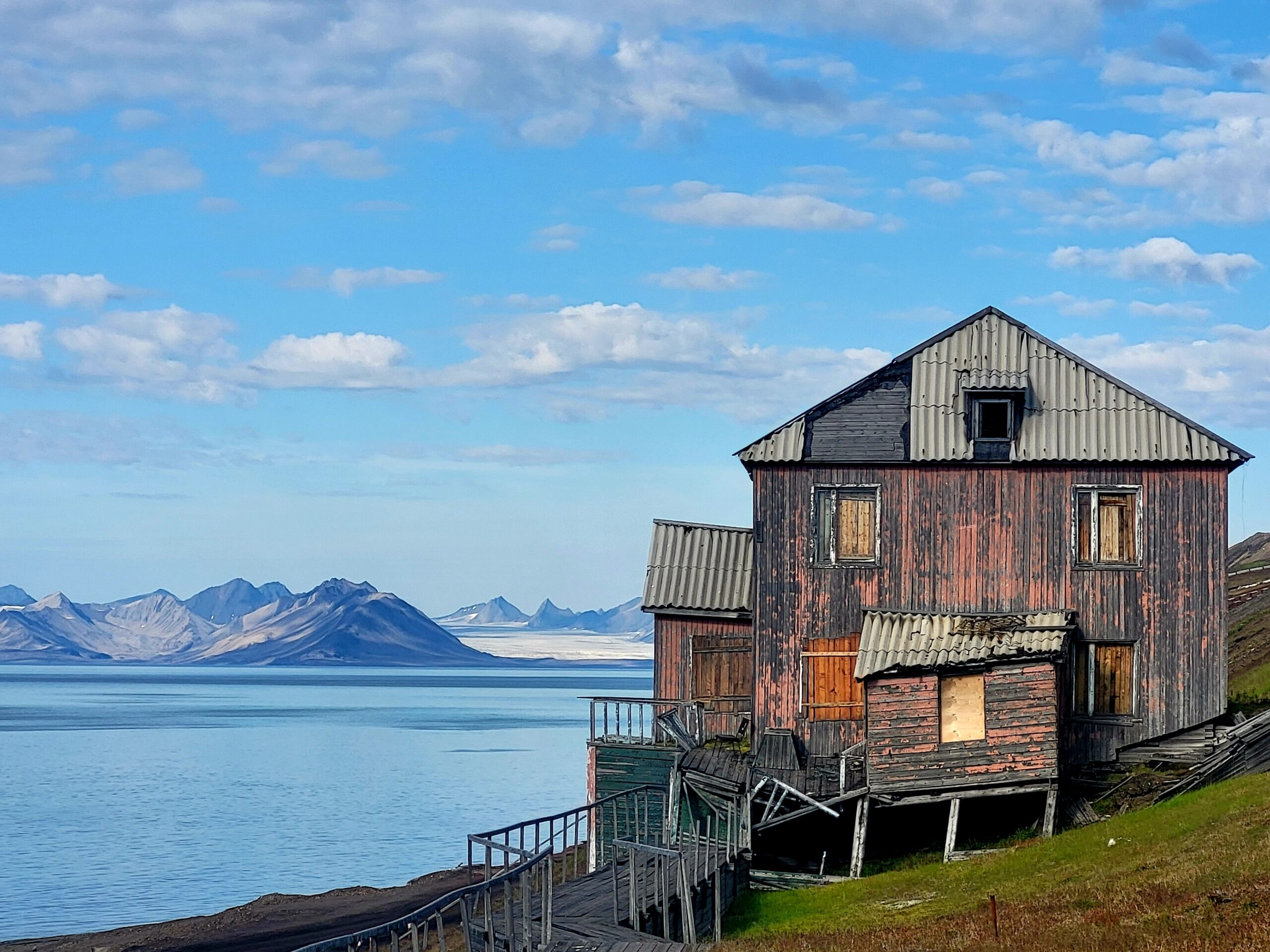
Along with her husband, a computer programmer she recently married in Barentsburg, Gusein-Zade plans to move to Turkey. Russia has already lost a great number of its young people. Much the same can be said for Barentsburg, where the dire consequences of international sanctions can be witnessed. The shops are half-empty. Food prices are exceptionally high. Every now and then, the goods intended for Barentsburg get held up at the Longyearbyen port for quite a long time.
Life has become very hard, everyone agrees. The supply routes are broken. The charter flights from Russia to Svalbard have been discontinued since the first coronavirus lockdown. Due to the war, they were simply never reinstated.
All this had a huge impact on local tourism. “It used to be that huge cruiser ships visited the Barentsburg port. Now we only get an occasional smaller tourist ship,” Gusein-Zade reported with a certain sadness. “There are virtually no tourists from Russia. Those who manage to come despite everything usually already have visas and live outside of Russia. Barentsburg mostly gets tourists from Europe, America, and Asia. My agency’s ship must sail over to Longyearbyen to pick them up. It’s the only available option.”
“How have the sanctions impacted personal relations in Barentsburg?” I asked.
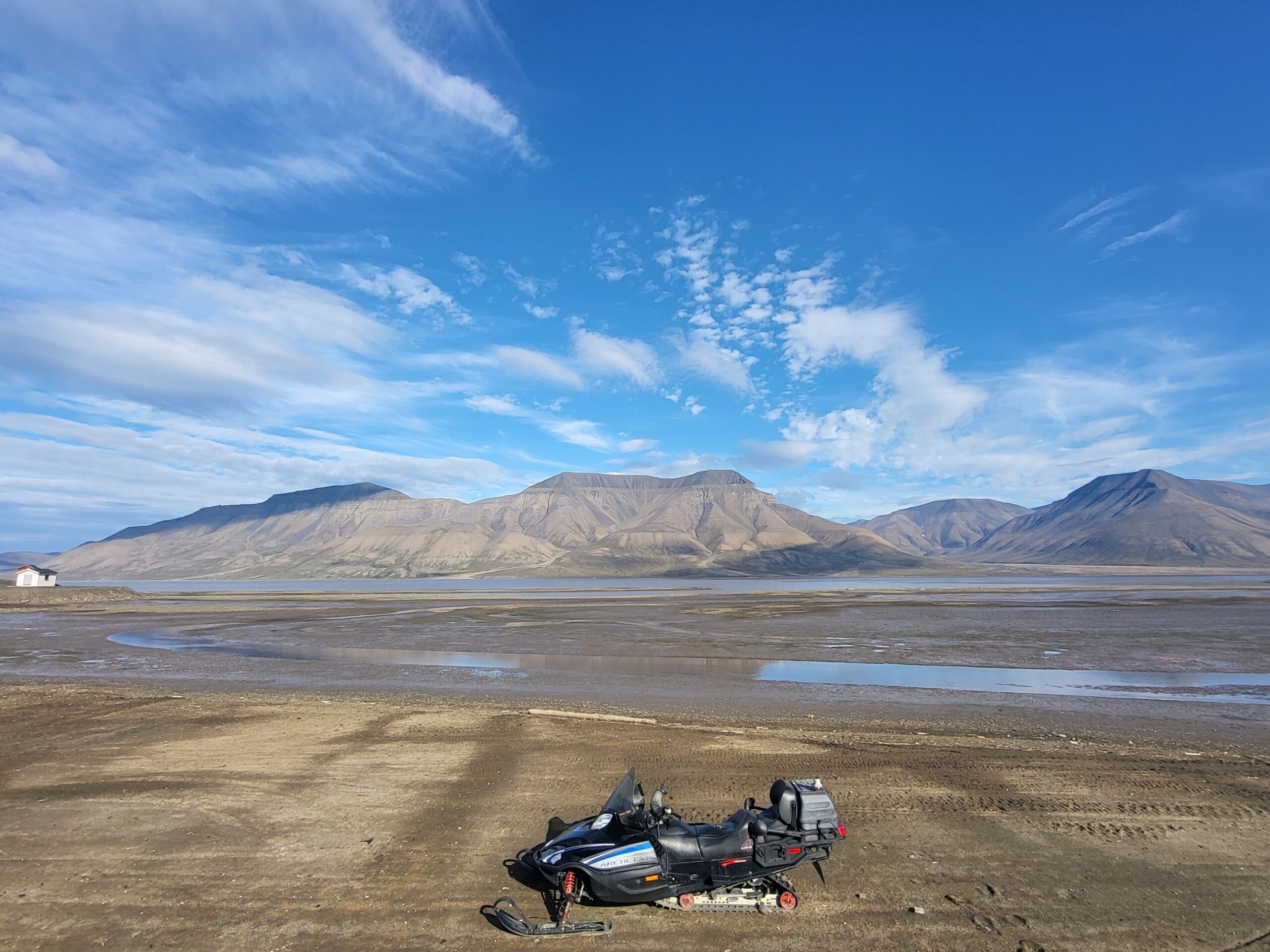
“Oh, the sanctions and all the mounting tensions have had a huge impact!” she answered. “Lots of people have departed. But those of us that remain seem to be going on well. We like to help each other, give our neighbor a hand. This is one of the advantages of living in a small community. But the sanctions have already done terrible damage. Their effect has been to strengthen already existing conflicts within the community. The people here are angry. The sanctions proved most harmful to the most economically vulnerable, and to those who wished to remain in contact. One can now really observe people harden in real time. And there’s also a lot of fear coming from both sides. The problem is that this kind of fear leads to hatred. I do not, however, believe cutting yourself off is any kind of a solution. Isolation often spells catastrophe, especially here, where we are already more or less cut off from the world. We need to stay connected – it is the only path to peace. To co-existence!”
Isolation often spells catastrophe, especially here, where we are already more or less cut off from the world. We need to stay connected – it is the only path to peace.
Dina Gusein-Zade
Gusein-Zade paused for one final time. “You know, I used to believe the Arctic was empty. But it isn’t. There is a lot of life here. And it is also vast and open. That is a source of inspiration for me.”
Geopolitical friction in the Far North
The Arctic may indeed be open, but only in a spatial sense. Geopolitical friction has recently become a huge influence on the lives of the inhabitants. Especially in Barentsburg, where the local authorities have turned the town into a theme park of Soviet-style propaganda.
Relations between Barentsburg and Longyearbyen began deteriorating as far back as 2014 when Russia annexed the Crimean Peninsula and sent its paramilitary units to the Donetsk and Luhansk regions in Ukraine. Tensions rose sharply after 24 February 2022, when Russia invaded Ukraine.
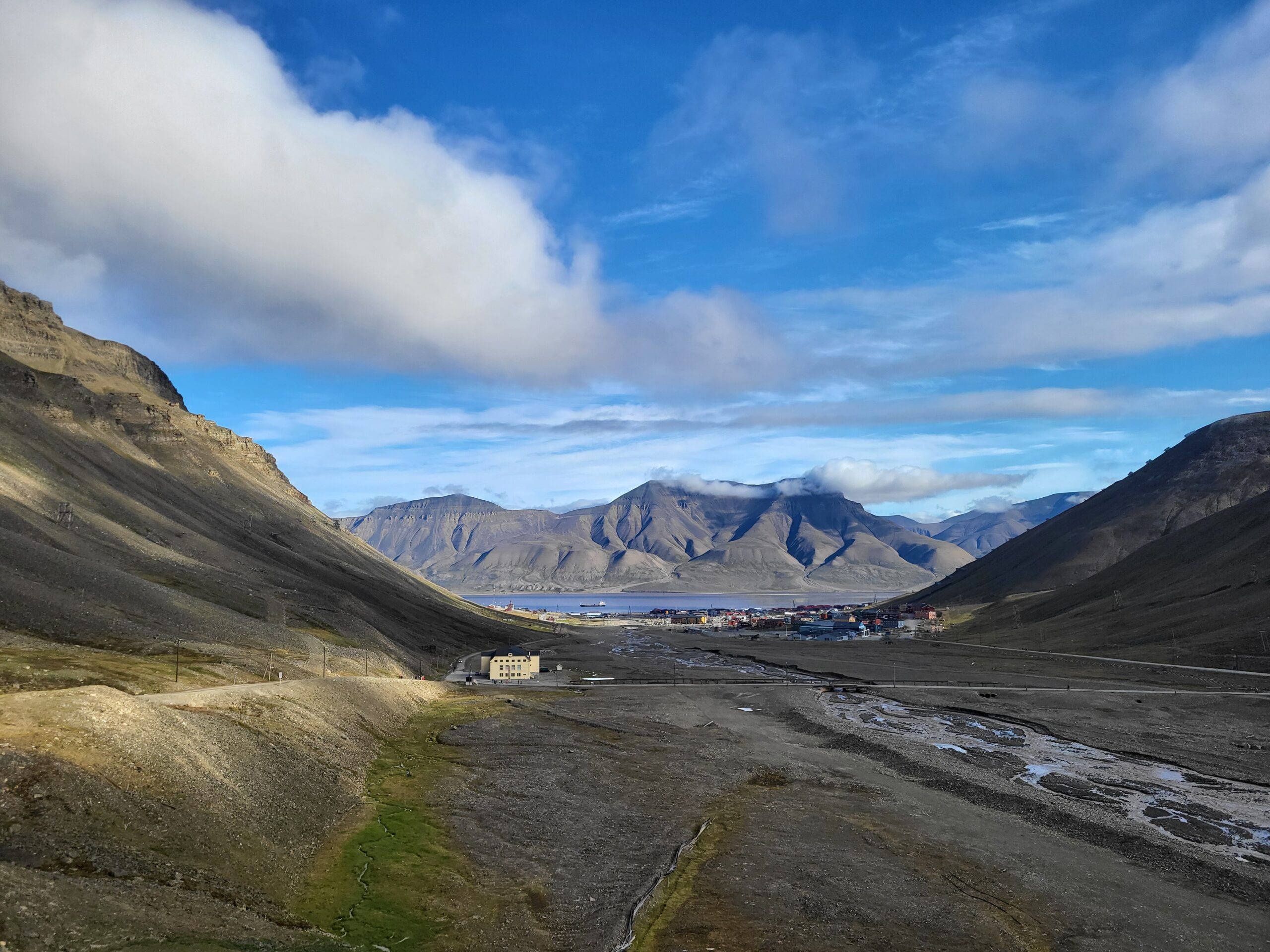
Yet despite the sanctions and the cessation of institutional cooperation between Russia and Norway, there is still communication between the governor of Svalbard and Arktikugol’s CEO in Barentsburg. The governor of Svalbard, Lars Fause, also visits his Russian counterpart – the general consul in Barentsburg – twice per month.
IX.
“The major changes in Barentsburg and within the Russian community on Svalbard began in 2021,” Kari Aga Myklebost, a professor of history at the Arctic University of Norway in Tromsø, explained. “It was then that the new Russian consul in Barentsburg and the new Arktikugol CEO began taking on ever greater powers. Arktikugol was turned into a vehicle for furthering Russian foreign-policy goals. Powerful Russian politicians were involved, among them several members of the State Duma. The new CEO and the general consul were quick to turn on their own employees. Especially when they tried to express their support for the now-deceased Alexei Navalny. The head of the Arktikugol’s tourist department was told to leave on account of his opposition to the new policies being implemented in Barentsburg. So, he left, like a number of other employees. Since then, Moscow’s influence only intensified. After the aggression towards Ukraine, freedom of expression took a further hit. The developments in Barentsburg are a reflection of the repression currently taking place all over Russia.”
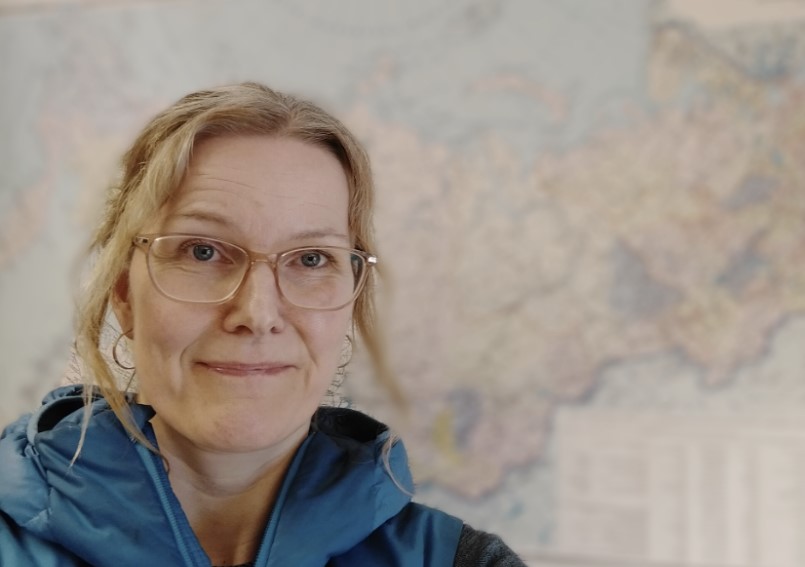
Aga Myklebost is considered Norway’s leading expert on Russia and the Arctic. “The new regime immediately began harping on about the rights of Russian workers in the Arctic and on Svalbard. And also, about the historical rights and the protection of the Russian population,” she described the gradual ‘Putinization’ of the traditionally moderate Barentsburg.
The head of the Arktikugol’s tourist department was told to leave on account of his opposition to the new policies being implemented in Barentsburg. So, he left, like a number of other employees. Since then, Moscow’s influence only intensified. After the aggression towards Ukraine, freedom of expression took a further hit. The developments in Barentsburg are a reflection of the repression currently taking place all over Russia.
Kari Aga Myklebost
“Very similar messages began to be issued from the higher reaches of Russian politics,” she went on. “It is a well-known tactic. The Kremlin keeps repeating that the West seeks conflict with Russia. The same sort of language was used before the invasion of Ukraine. Russia sees this sort of propaganda stunt as extremely cheap, simple, and effective.”
According to the Norwegian professor, the ever-increasing politicization of Barentsburg does not necessarily mean the Russian authorities are about to act on their rhetoric. Most of the propaganda may very well be aimed at the Russian public. After all, it was by choking off every dissenting voice that the support for the aggression in Ukraine gained domestic support.
“The Russian motives on Svalbard have not changed,” Aga Myklebost cautioned. “They want to keep control of the Barents Sea, which is now being opened up for international trade on account of the melting ice. This is why Russia keeps trying to contest the Svalbard treaty and Norway’s sovereignty over the archipelago. They want to prevent Svalbard – and this part of the Arctic – from being controlled by NATO. You see, if there is ever a serious conflict between Russia and NATO, Russia will be forced to close off the waterways around Svalbard leading directly to Russia and the Kola peninsula, where a great deal of Russian nuclear capability is stored. I believe this is why Russia does not want further escalation of hostilities with the West. It would simply pose too much of a risk.”
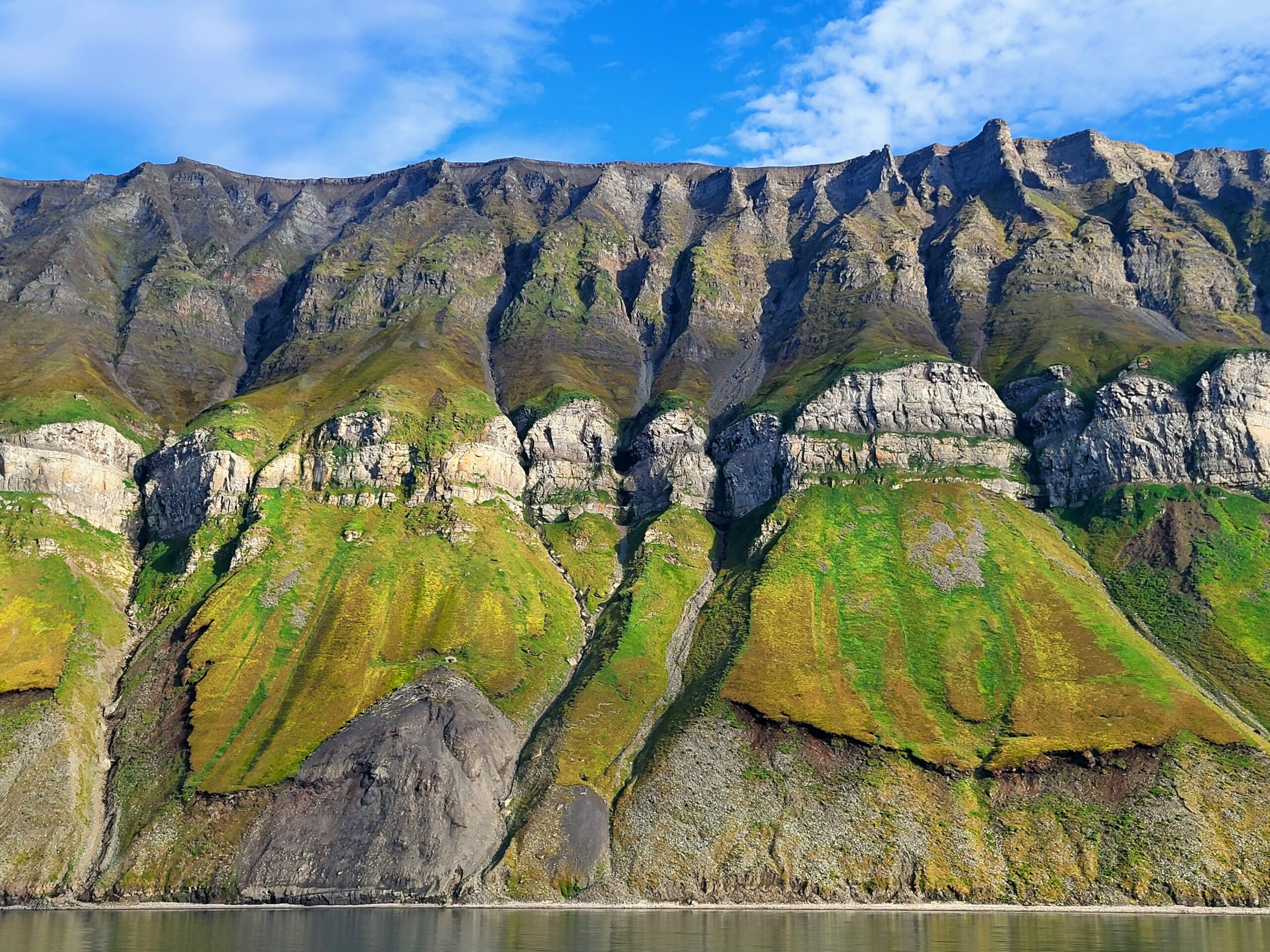
This is the reason why Aga Myklebost believes the recent Russian provocations were not of a military nature. “It’s mostly ideology. Russia is screaming – but only symbolically! I believe they are much more interested in the response of the domestic public than in the response of the West. All the propaganda is conducted exclusively in the Russian language. Though it is also true that Russia would like to provoke Norwegian policymakers into providing an alibi for the shaking of the Svalbard treaty.”
A huge blow to science
“Let’s hope that the current poor relations between the main protagonists in the Arctic are not the new normal. The future of Arctic exploration is at stake, given that roughly half of the Arctic coast is located in Russia,” said Kim Holmen, the former director of the Norwegian Polar Institute and now its special advisor.
“In order to further our understanding of the North, we need data – we need collaboration between experts, no matter what their nationality,” Holmen continued. “This would be in humanity’s best interest. But as things stand, collaboration is impossible.”

Holmen, considered the foremost authority on Arctic exploration, believes that the current halting of the information flow can be attributed exclusively to the Russian invasion of Ukraine. “Before that, the Polar Institute had an excellent collaborative relationship with Russian scientists. But now Norway no longer allows contacts between institutions. The sanctions also prevent financial transactions, which poses a huge additional hindrance.”
Holmen told me he had several friends among Russian scientists, but conferring with them was no longer possible. “There are just too many obstacles. We started compensating for our new lack of data with the use of satellites…But at the end of the day, human knowledge is required for us to understand how the Arctic really functions. We need reports directly from the field. What is going on with the permafrost? What’s happening to the fish? To the oceans? To the glaciers? Satellites can’t really provide that sort of data.”
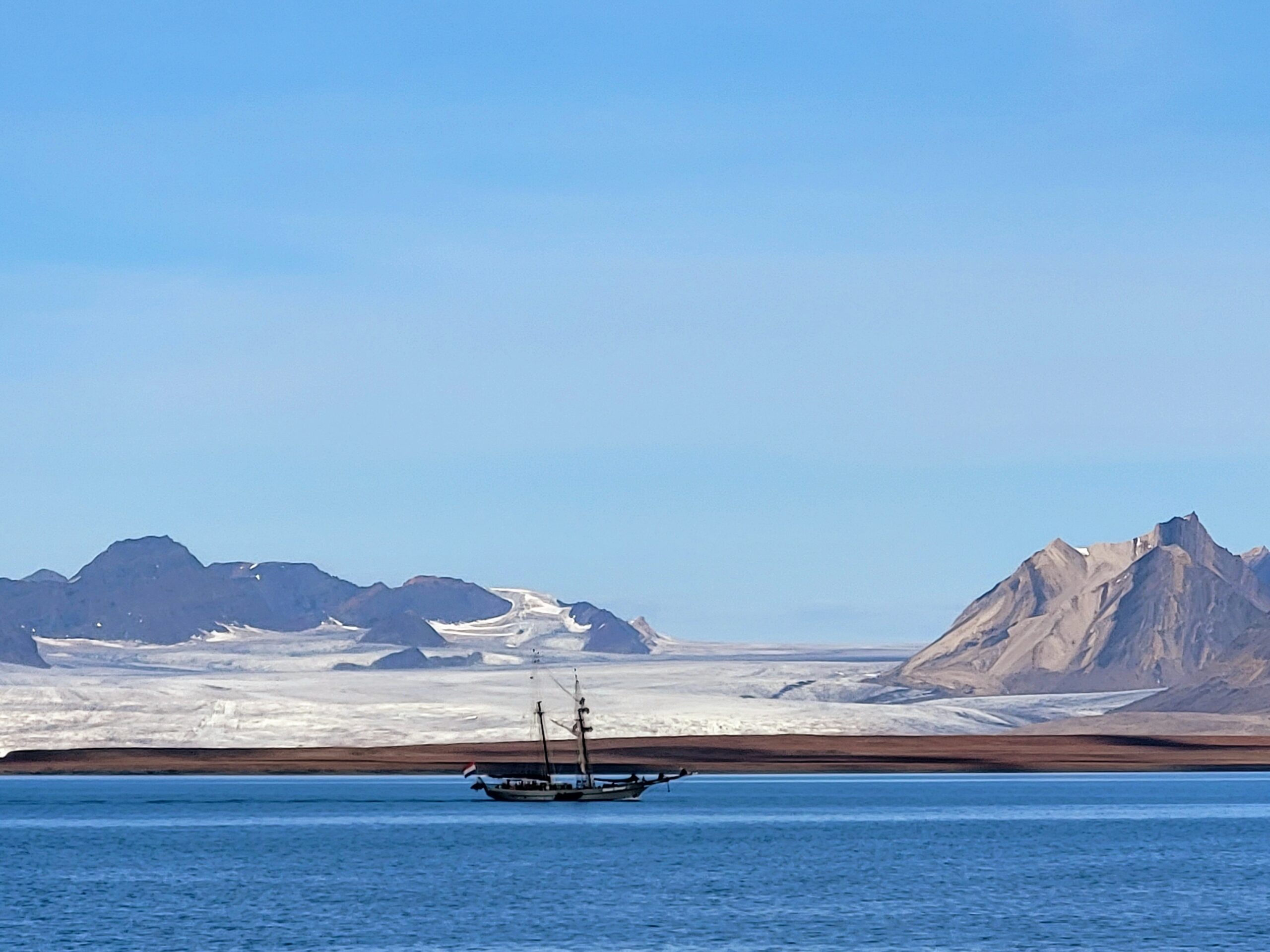
According to Holmen, one consequence is that over the past two and a half years our understanding of what is happening in the Arctic has started to deteriorate. Given the ferocity of climate change, this is extremely bad news. “The result is that we shall find it increasingly difficult to predict the near future. Severed relations are bound to have far-reaching negative effects. Science has been dealt a huge blow.”
X.
It was late afternoon when MS Polar Girl left the Barentsburg port. In the distance, I could observe the glistening of the glaciers, a vanishing world.
I asked Masha whether the sail felt like she was leaving her home.
“No,” she replied. “My home is this ship!”